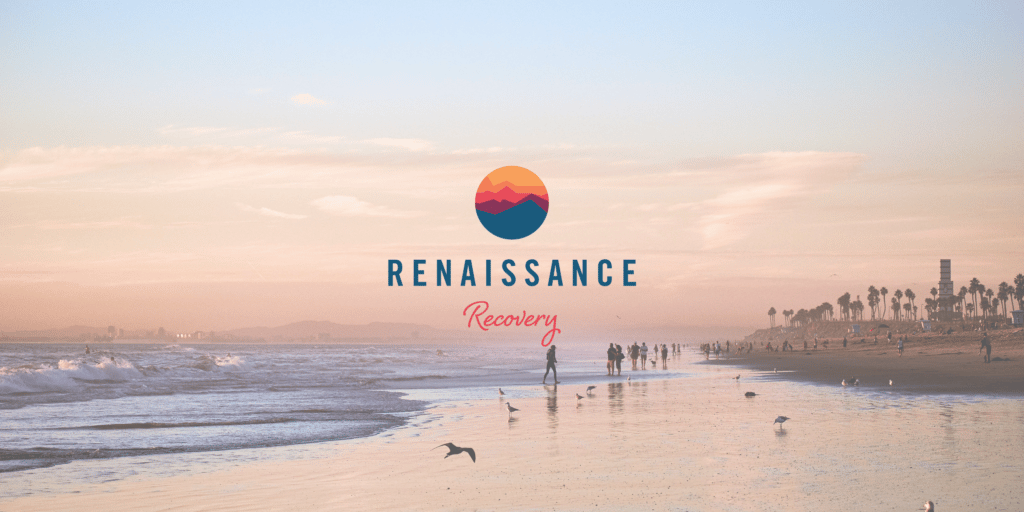Of the many important things to know about addiction, it is crucial to understand that addiction is a complex disease that is both preventable and treatable.
According to ASAM (American Society of Addiction Medicine), addiction is a chronic and relapsing medical diseases triggered by a combination of:
- Genetics
- Environmental factors
- Life experiences
- Interactions between brain circuits
Central to addiction is the compulsive seeking of addictive substances and the habitual use of substances despite clearly negative outcomes.
Over time, addiction brings about changes in the areas of the brain responsible for memory, motivation, and reward causing chronic impairment. As a result, you will crave the substance in question regardless of the consequences.
What to Be Aware Of?
Some things to know about addiction are that it brings about:
- Lack of self-control concerning substance use.
- Inability to moderate or stop using the substance.
- Impaired emotional responses.
- No apparent concern for the adverse consequences associated with your substance use.
- Building desire for the substance and growing tolerance for the substance.
The two most well-known addictions are:
- Alcoholism (alcohol use disorder)
- Drug addiction (substance use disorder)
The latest SAMHSA data from NSDUH 2020 shows that 40 million people in the U.S. have substance use disorder and 28.5 million have alcohol use disorder. The same data shows that less than 10% of those people seek professional treatment.
Both alcoholism and drug addiction are chronic, progressive, and relapsing diseases. Both conditions can be aggravating and disruptive to functioning. Characterized for many by cycles of relapse and remission rather than seamless recovery and sustained sobriety, addiction can be destabilizing for the whole family unit.
If untreated, addictions typically worsen over time, often bringing about financial stress, chronic health complications, and problems in your personal and professional life.
Alcohol Addiction
The first of many things to know about alcohol addiction is that alcohol use disorder is a brain condition diagnosed according to the criteria in DSM-5-TR. DSM-5-TR is the most current edition of the APA’s benchmark diagnostic tool, Diagnostic and Statistical Manual of Mental Disorders.
For a diagnosis of alcohol use disorder, a medical professional will assess your responses to these questions concerning your alcohol use over the previous year:
- Do you often drink more alcohol than intended or drink for longer than you planned?
- Have you tried and failed to moderate or discontinue alcohol use on more than one occasion?
- Are you spending lots of time obtaining and using its alcohol, as well as recovering from the effects of alcohol abuse?
- Have you experienced powerful cravings for alcohol?
- Does your use of alcohol cause you to neglect personal and professional responsibilities?
- Are you still drinking alcohol despite persistent problems in your interpersonal relationships caused or inflamed by your alcohol consumption?
- Are you spending less time doing things you once enjoyed because of alcohol use?
- Have you frequently used alcohol in dangerous situations like before driving?
- Do you continue drinking alcohol even though it is causing or inflaming a physical or psychological health condition?
- Do you need more alcohol to achieve the same effects as tolerance builds?
- Have you experienced withdrawal symptoms as the effects of alcohol wear off?
Depending on the number of symptoms present, alcohol use disorder is diagnosed as mild (2 or 3 symptoms), moderate (4 or 5 symptoms), or severe (6 or more symptoms).
Alcohol might be legal but is also the most abused addictive substance in the United States. Abusing alcohol can lead to both psychical dependence forming and psychological addiction developing.
Long-term alcohol abuse can spark a variety of serious physical and mental health conditions. Chronic alcohol abuse can be deadly.
Although there is no cure for alcoholism, even severe alcohol use disorders usually respond well to a combination of the following interventions:
- MAT (medication-assisted treatment)
- Psychotherapy like CBT (cognitive behavioral therapy)
- Individual and group counseling

Drug Addiction
Among the many things to know about drug addiction is the clinical descriptor for drug addiction – substance use disorder. There are also specific substance use disorders, such as marijuana use disorder, stimulant use disorder, and opioid use disorder.
Just like alcohol use disorder, substance use disorder is a multifaceted condition associated with uncontrollable drug use despite negative consequences. Substance use disorders are diagnosed according to the same diagnostic criteria as alcohol use disorder but with prescription medications or illicit drugs being used instead of alcohol.
Some of the most common drug addictions in the United States are:
- Marijuana addiction: With marijuana laws changing across the United States, more and more states are legalizing the drug for both medical and recreational use. Unfortunately, studies show that roughly 30% of those who use marijuana subsequently develop an addiction in the form of cannabis use disorder, also known as marijuana use disorder. Most decent drug rehabs will provide treatment for marijuana addiction.
- Opioid addiction: Opioid addiction includes prescription opioid pain relievers, as well illicit semi-synthetic opioids like heroin and synthetic opioids like fentanyl. All opioids are powerfully addictive, but all opioid addictions respond favorably to treatment with FDA-approved medications – methadone, buprenorphine, and naltrexone.
- Meth addiction: Meth addiction, clinically known as stimulant use disorder, has no suitable medications approved for treatment. Meth rehab involves counseling and psychotherapy to help you address the fiercely psychological component of meth addiction.
- Cocaine addiction: There are no medications approved by the FDA for the treatment of cocaine use disorder, also known as stimulant use disorder. Luckily, withdrawal symptoms are mainly psychological in presentation, meaning most cocaine addictions respond positively to outpatient treatment.
- Prescription pill addiction: In addition to opioid painkillers, many people develop an addiction to other prescription pills – benzodiazepines, for instance. Benzos are highly effective for the short-term treatment of panic disorders and anxiety. The medication also has a strong potential for abuse and addiction. A tapered reduction followed by MAT and psychotherapy can help you to combat addiction to prescription medications.
Those in Recovery
If you are exploring things to know about recovering addicts, NIDA reports that addiction is a chronic and relapsing disorder that usually responds well to evidence-based treatment.
Those in recovery from addiction suffer in the same ways as those coping with other chronic health conditions like heart disease or diabetes. Addiction, like other chronic health conditions, disrupts normal functioning in the body, often with serious long-term effects. In most cases, addiction is preventable, and it’s nearly always treatable. When untreated, addiction normally worsens over time, oftentimes with fatal consequences.
The best treatment plans for addiction are personalized from these therapies:
- MAT: medication-assisted treatment is highly effective for the treatment of both alcohol use disorder and opioid use disorder. Medications approved by the FDA can streamline the intensity of detox. MAT can also inhibit further substance use if used as part of ongoing treatment for addiction.
- Psychotherapy: Both CBT (cognitive behavioral therapy) and DBT (dialectical behavior therapy) are proven effective for treating addictions. These talk therapies work well when delivered together with MAT.
- Counseling: Both individual and group counseling sessions are beneficial components of an addiction treatment plan.
If you or a loved one are ready to fight back against addiction, we can help you here at Renaissance Recovery Center.
Overcoming Addiction at Renaissance Recovery
Whether you have alcohol use disorder or substance use disorder, a mental health condition or a dual diagnosis, we can help you with personalized outpatient treatment or remote therapy here at Renaissance Recovery. We offer treatment programs at the following levels of intensity:
- OP – standard outpatient program providing 2 to 3 hours of therapy sessions each week.
- IOP – intensive outpatient program providing 12 to 15 hours of therapy sessions each week.
- PHP – partial hospitalization program providing 30 to 35 hours of therapy sessions each week.
- Virtual IOP – remote rehab providing addiction treatment via videoconferencing.
Regardless of the level of treatment intensity that best suits your addiction or mental health condition, your treatment team will individualize a treatment plan drawing from these research-backed interventions:
- Group counseling
- Individual counseling
- Psychotherapy
- MAT
- Family therapy
- Holistic therapies
Whether you step down to a less intensive treatment program or move straight into sober living, we’re here to help you from detox to discharge and beyond here at Renaissance. Kickstart your recovery from addiction by calling 866.330.9449 today.










